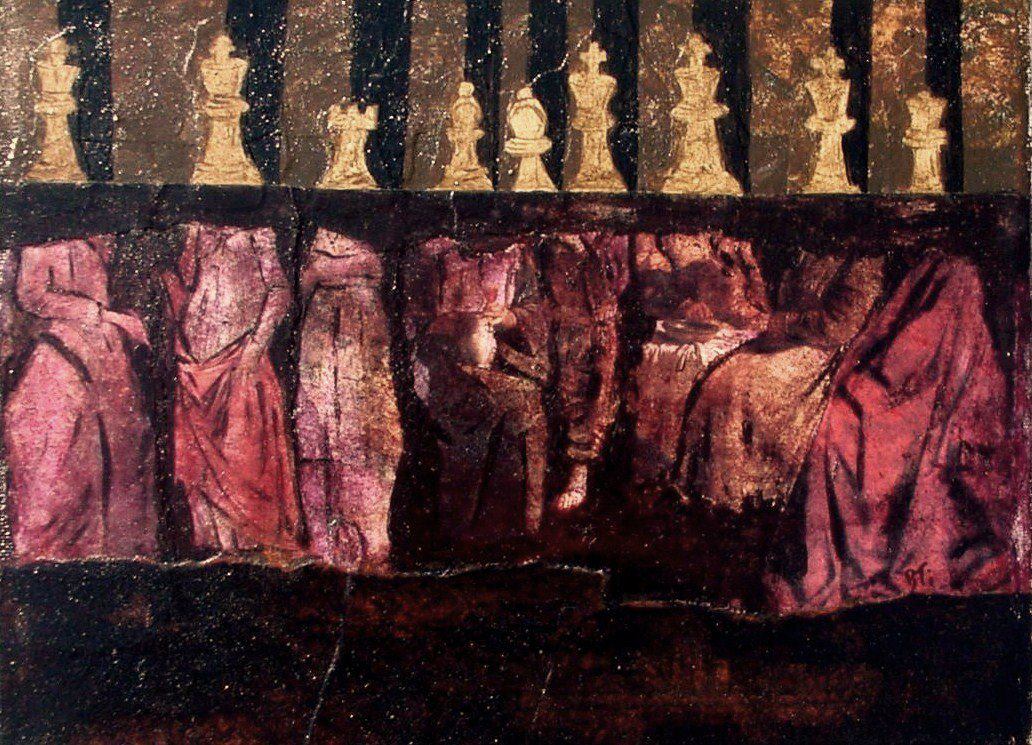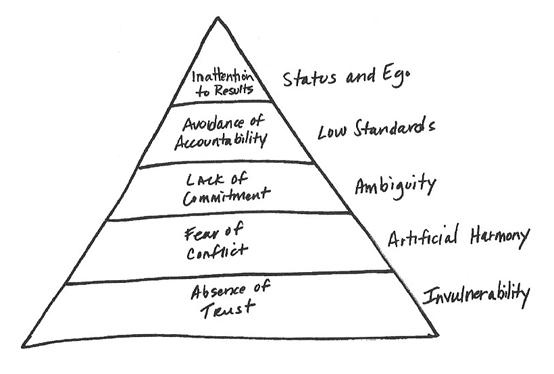Games people play - the evolution of trust

A few years ago, I sent a text to my husband saying "I am an idiot" after playing the game Evolution of Trust. He had shared the game with me because he had heard about someone playing me in a corporate world. If you haven't played this game yet, I highly recommend taking a few minutes to explore it. The game demonstrates, in a simple yet calculated way, how strategic thinking can determine who comes out on top in the race to success.
Playing the game Evolution of Trust taught me that I tend to collaborate, but the game theory presented in it also shows that collaborators often end up being pushed out of organizations. This is not necessarily because collaboration is bad, but rather because copycats and cheaters who don't play by the rules often achieve success by exploiting the efforts of collaborators. This phenomenon is evident in every organization, whether we like it or not, and affects the level of empowerment and influence that collaborators can attain within it. Although it doesn't always result in job loss, we can see cases where good workers are made redundant due to these power dynamics.
Rules of relationships are like playing chess - “only” a couple of times more complicated.
Whether we are aware of it or not, we are playing in the same game others are co-creating. There is no such thing as 'no play.' Even if we are passive, we are still players and we may get 'eaten.'

Robert Grudin's quote perfectly encapsulates the complexity of trust and relationships. There are common pitfalls that can cause trust to erode, including dishonesty, broken promises, and a lack of follow-through. These can be particularly damaging in professional relationships, where trust is essential for effective collaboration and communication.
Research has shown that a lack of trust can have serious negative impacts on organizations. One study found that trust was positively related to employee commitment, job satisfaction, and organizational citizenship behavior (Dirks & Ferrin, 2001). Another study found that trust was negatively related to turnover intention (Mayer, Kuenzi, & Greenbaum, 2010). According to a study published in the Journal of Applied Psychology, "when trust is low, communication is poor, cooperation is minimal, and productivity is compromised" (Dirks & Ferrin, 2002). These findings demonstrate the importance of trust in fostering positive workplace relationships and outcomes.
The book "The Five Dysfunctions of a Team" by Patrick Lencioni highlights common dysfunctions that can arise in teams, including a lack of trust. According to Lencioni, the foundation of a successful team is trust, and without it, team members are less likely to engage in open communication and collaboration. Lencioni suggests that team members can build trust by being vulnerable, sharing their weaknesses, and admitting their mistakes.

To foster personal growth and strengthen relationships, it's important to take proactive steps to build trust. This can include being honest, reliable, and transparent, as well as communicating effectively and listening actively. It's also important to set clear expectations and follow through on commitments. By prioritizing trust and making it a core value in our relationships, we can build stronger connections and achieve greater success in both our personal and professional lives.
If we want to create a more productive team dynamic, it is important to understand that conflict can be productive rather than destructive. As noted in a Harvard Business Review article, "the best teams debate, disagree and then rally around a decision, fully supporting it as if it were their own" (Behnam Tabrizi, 2015). However, acknowledging the value of conflict is just the first step.
In order to address conflict, a team should designate someone as a "miner of conflict." This individual's role is to identify and extract buried disagreements, call out sensitive issues, and put them on the table for discussion. By doing so, the team can address issues that may be hindering progress and work to resolve them together.
In addition, team members need to give one another real-time permission to engage in healthy debate. When individuals start to feel uncomfortable with the level of discord, they should be reminded that constructive conflict is necessary for growth and development. After the meeting, participants should also be reminded that the conflict they just engaged in is good for the team and not something to avoid.
To help manage conflict, the Thomas-Kilmann Conflict Mode Instrument (TKI) can be a useful tool. This assessment identifies an individual's preferred conflict resolution style and provides insights into how they can adapt their style to better suit the needs of the team. By understanding each team member's preferred conflict resolution style, the team can better navigate and manage conflict in a productive manner.
In conclusion, trust is a fundamental aspect of human relationships that can be complicated by psychological games. By understanding the dynamics of trust and the strategies people use to build it, we can navigate these games more effectively and build stronger relationships based on mutual respect and cooperation. Remember, in the game of trust, there is no such thing as 'no play.' So, be aware, be strategic, and most importantly, be authentic.